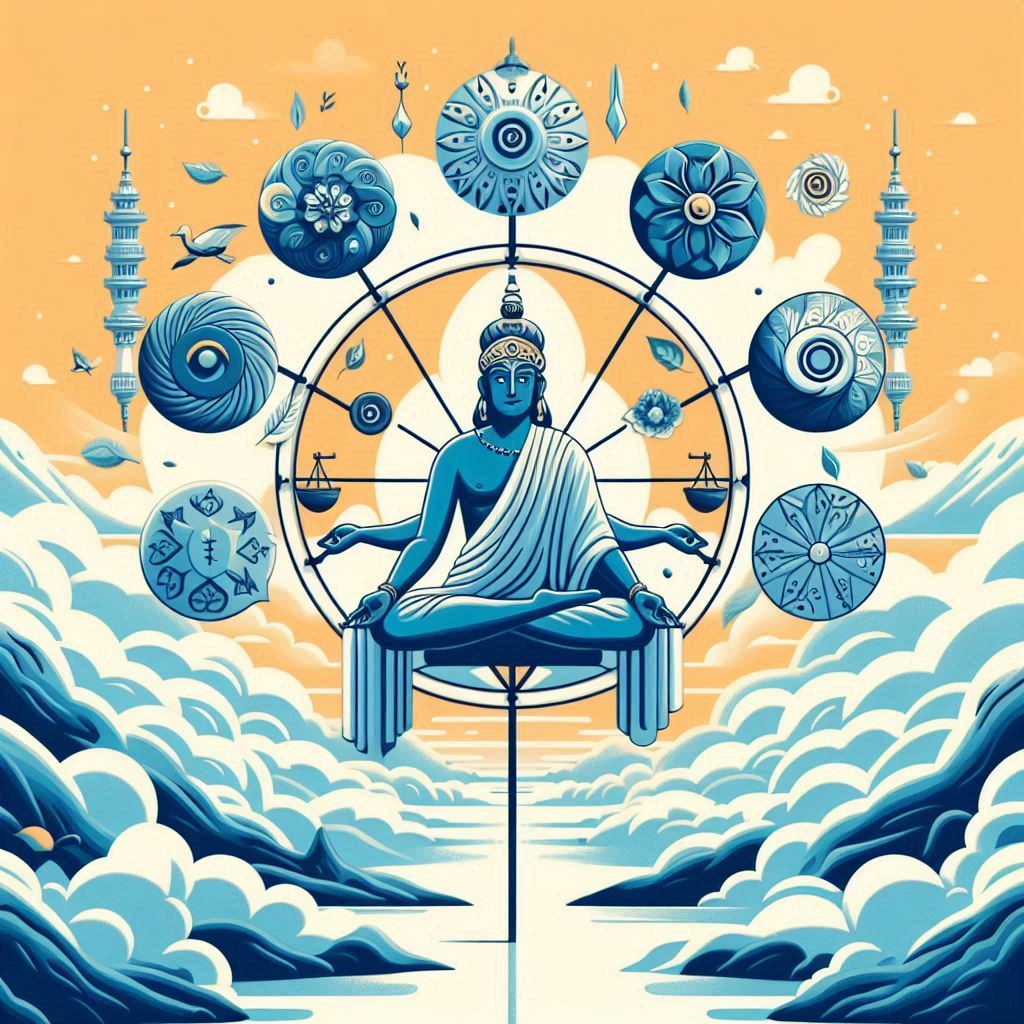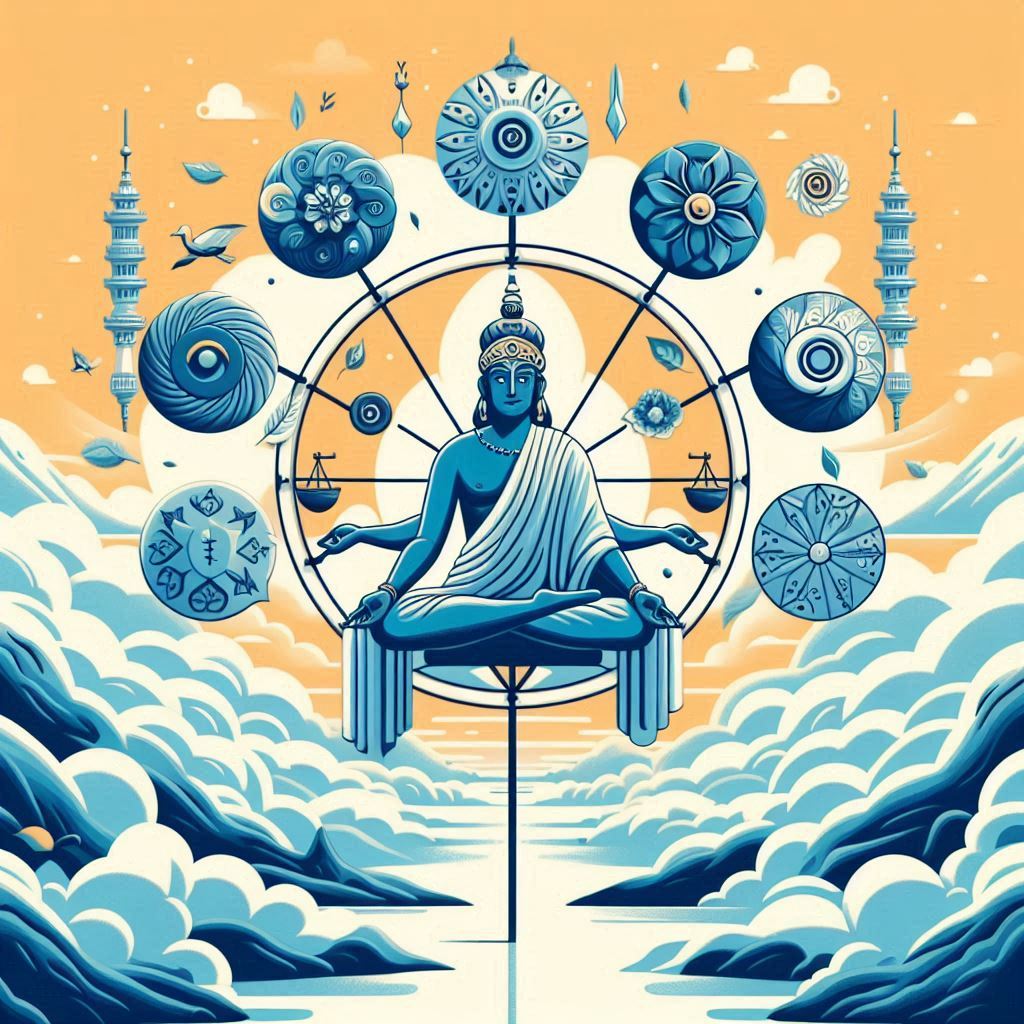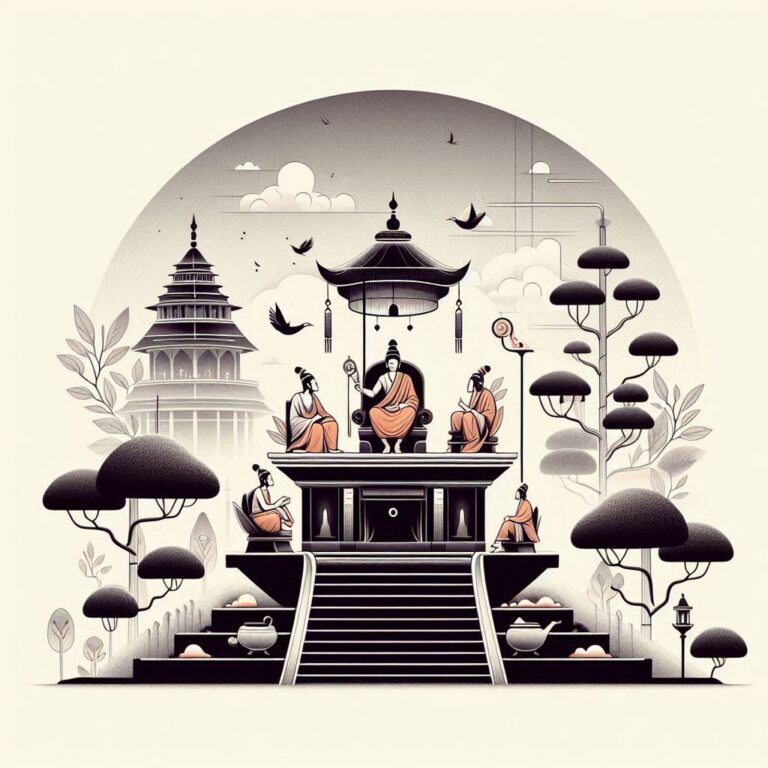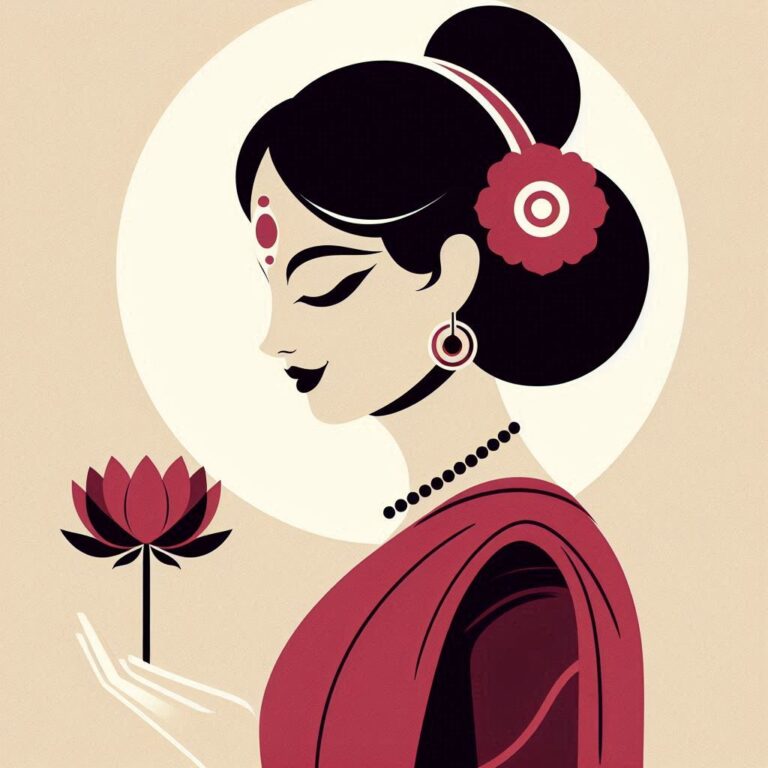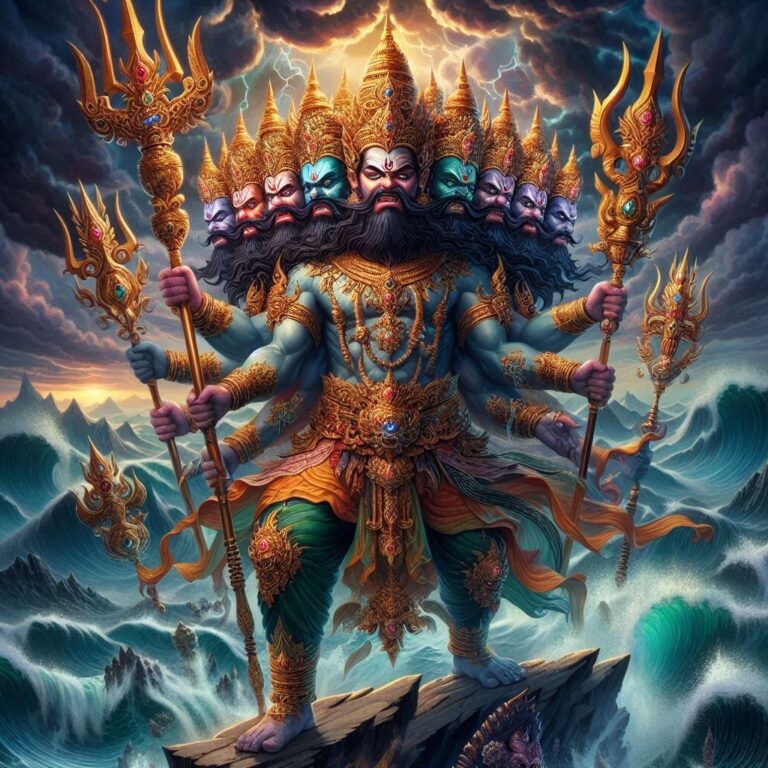Understanding Fate and Free Will in the Ramayana’s Teachings
Fate vs. Free Will: Insights from the Ramayana
When it comes to Indian epics, the Ramayana stands out not just for its narrative depth but also for the profound philosophical questions it poses about fate and free will. Many of us find ourselves pondering our destinies—do we have the power to shape our lives, or are we merely puppets of fate? Just like in the gripping tale of Lord Rama, these questions are woven throughout the fabric of the Ramayana, sparking rich discussions that transcend time. So, let’s embark on this fascinating journey to explore the roles of fate and free will as depicted in this timeless epic.
The Essence of Fate and Free Will
Before diving into the Ramayana, let’s clarify what we mean by fate and free will.
- Fate is often perceived as a predetermined course of events that is beyond an individual’s control. It’s like a river that has already carved its path, regardless of our intentions.
- Free will, on the other hand, signifies the power of choice. It’s the ability to act according to one’s own volition, akin to navigating down a river with various forks and bends to choose from.
Both concepts often clash, yet they coexist within the narrative of the Ramayana, where characters continually face crucial choices that intertwine with their preordained destinies.
Understanding Fate in the Ramayana
The Ramayana, authored by the sage Valmiki, recounts the life journey of Lord Rama. From his divine birth to his exile and battles, every event is steeped in fate.
The Divine Plan
One of the central themes of the Ramayana is the idea that Lord Rama’s life is a fulfillment of divine prophecy. His birth was foretold, and he was destined to perform righteous deeds, embodying the ideal of dharma.
श्रीराम चन्द्र कृपालु भज मन हरण भव भय दारु।
“Shri Ram Chandra Kripalu Bhaj Man, Harn Bhav Bhaya Daru.”
“O Mind, worship the compassionate Lord Ram, who rescues everyone from the fears of this worldly existence.”
This quote encapsulates the essence of Rama’s role in the cosmic order. His fate was intricately linked to maintaining cosmic balance and enforcing righteousness (dharma).
The Influence of Righteousness
In the epic, the characters often grapple with the consequences of their actions, showcasing how fate can be influenced by one’s choices. Think about how Bhishma, in the Mahabharata, made vows that led to his tragic fate. Similarly, in the Ramayana, it is Dasharatha’s choices—his promise to Kaikeyi—that set off a chain reaction impacting many lives.
कर्मण्येवाधिकारस्ते मा फलेषु कदाचन।
“Karmanye vadhikaraste ma phaleshu kadachana.”
“You only have the right to your actions, but never to the fruits of those actions.”
This shloka, though from the Bhagavad Gita, resonates with the Ramayana’s messaging about duty and moral obligation, indicating how our deeds can shift the course of fate.
The Role of Free Will in the Ramayana
While the storyline can give the impression that many events are fated, it’s crucial to acknowledge the agency that characters demonstrate throughout the epic.
Choices Define Destiny
Take Sita, for example. Her love for Rama drives many of her decisions. When her abduction by Ravana occurs, it appears as if fate has dealt her a cruel hand. Yet, her resilience and refusal to submit to despair highlight her free will.
रामो विलक्षणा दाशारथिः।
“Ramo Vilakshana Dasharathi.”
“Rama, distinct in honor, the son of Dasharatha.”
Even when faced with adversity, Sita’s determination influences her fate, proving that while fate may set the stage, the characters can still play their parts in shaping the outcome.
Ascetic Choices
Consider Lord Rama’s decision to go into exile. He chooses righteousness over royal privileges, highlighting how free will can lead to a predetermined fate. His step into the forest speaks volumes about the power of sacrifice for the greater good, a fundamental aspect of dharma.
दुर्गति कर्म सिध्यते।
“Durgati Karma Siddhyate.”
“Bad deeds lead to bad outcomes.”
The Interplay of Fate and Free Will
The captivating dance between fate and free will is perhaps best illustrated during the various trials the characters face, constantly balancing their predestined roles with the autonomy of choice.
Lessons of Dharma
Throughout the Ramayana, adhering to dharma is pivotal. Each choice the characters make showcases their struggle between destiny and autonomy. The moment when Lakshmana cuts off Surpanakha’s nose, for example, both creates an irreversible fate for her and acts as a catalyst for the events that follow, exemplifying this intricate balance.
द्रव्यं कर्तव्यते जयात्मा संसाराय यशां एन यशंसमा।
“Dravyam Kartavyate Jayatma Sansaraya Yasham Ena Yashamsama.”
“Possessions matter little; the spirit emerges victorious in the play of life.”
This notion provides insights into how character actions, regardless of fate, shape personal destinies.
Modern Perspectives
In contemporary terms, the Ramayana invites discussions similar to those found in psychology and philosophy about determinism versus agency. Does our environment dictate our decisions, or do we have the inner strength to forge our paths? This question reverberates today, just as it did in ancient times.
Conclusion
The Ramayana beautifully illustrates the dynamic between fate and free will. It teaches us that while fate may lay down a foundation, distinct choices can build upon it to create a unique structure. The epic serves as a vivid reminder that our actions have consequences—both in the realm of the divine and in our own lives.
Just like Lord Rama, we all face choices that will define us and mold our destinies. As we navigate through life, we must remember that while some things are beyond our control, the choices we make along the way are still ours to determine.
So, the next time you’re faced with a decision, reflect on Rama and Sita. Consider the delicate interplay of fate and free will in your own journey. What choices can you make now that might reshape your future?
FAQs
-
What is the main theme of the Ramayana concerning fate and free will?
The Ramayana explores how fate and free will coexist, illustrating that while some events are preordained, choices made by individuals significantly impact their destinies. -
How does Sita’s character reflect the theme of free will?
Sita’s choices, particularly in her resilience against Ravana’s abduction, exemplify the power of free will, demonstrating her agency despite fate’s challenges. -
How does Lord Rama embody the concept of dharma in relation to fate?
Lord Rama’s unwavering commitment to dharma showcases how he fulfills his fated role through conscious decisions and moral responsibilities.
-
Can the teachings from the Ramayana be applied to modern life?
Yes, the lessons about choices and their consequences in the Ramayana are timeless, encouraging individuals to take responsibility for their actions and to navigate life’s challenges with wisdom. -
What philosophical questions does the Ramayana raise regarding determinism?
The Ramayana invites readers to ponder whether our lives are entirely determined by fate or if we possess the freedom to change our paths through conscious choices and ethical actions.
